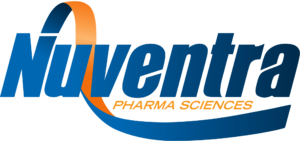September Land O’ Lakes: 21st Century Cures Act and its Impact on DMPK
Conference Theme: 21st Century Cures Act and DMPK
The theme of the 21st Annual Land O’ Lakes Drug Metabolism and Pharmacokinetics conference was “New Opportunities for DMPK: The 21st Century Cures Act.” The 21st Century Cures Act was signed into law in December 2016 and has major implications for drug development. It was established to accelerate medical product development and more efficiently bring innovations and advances to the patients who need them. The Cures Act will allow for more modernized clinical trial designs which should help bring drugs to market more quickly. Check out our blog to learn more about the 21st Century Cures Act.
The FDA’s new DDI guidance from October 2017 and its significance for DMPK scientists was also discussed. Several presentations reflected this year’s theme including Dean Knuth’s presentation on “Considerations for the Use of Adaptive Trial Designs in Early Clinical Development” and Elimika Pfuma Fletcher’s “Clinical DDI Guidance.” DMPK research has many new opportunities with this new guidance and legislation to support drug development.
Another component of this theme includes looking at new research that will impact the DMPK field. The Wednesday afternoon session focused on new findings in microbiome influences on metabolism. The microbiome is only beginning to be understood. Its influence on drug metabolism could impact the efficacy of drugs, and learning how the microbiome behaves can improve drug development strategies.
“I’m very excited this year to moderate a session on the microbiome. This is the bacteria in your gut that metabolize food and drugs and its incredibly relevant to drug disposition. It turns out that it’s in fact far more relevant than we realized. There are a number of stories out there of toxic metabolites that have impacts to human health that are actually generated by gut microbes.” Celeste MacElrevey, PhD, Nuventra
Using new technology to provide the best patient outcomes was another component of the theme. Another session focused on mathematical modeling to help translate non-clinical data to clinical trials. This improves dose selection and optimizes therapy outcomes.
As the FDA has reevaluated their clinical guidelines, scientists too can reevaluate the success of their trial designs to improve clinical outcomes. Coming together at conferences is a great time to do so and sharing these ideas moves the field forward as a whole.
“The learning cycles that we go through as industrial scientists in particular are becoming increasingly important to shorten development time, shorten discovery time, to bring things to the clinic faster. So therefore I think it’s important for us as a discipline and as colleagues to periodically pause, take a look at where we’re at scientifically and say ‘what are we doing well and what can we do better? and where might there be opportunities for collaboration?’” Dan Mudra, PhD, Eli Lilly & Co
Planning the Conference
It takes a lot of planning and preparation to put together a lineup of relevant topics and expert speakers for a four-day conference. The process begins with the planning committee members using their experience to lay out an agenda that will address what attendees want to learn and current advances in the field. Many committee members have had long tenures with the DMPK conference such as Bob Guttendorf who has been attending since the very first one. Committee members are from academia, industry and the regulatory arena, allowing them to contribute their own experience and unique perspectives to the topics on the agenda.
Next, the topic selection process must be effective in choosing what attendees want to learn. The process is meticulous and members spend a lot of time discussing what will most benefit attendees. Their primary source of new topic ideas comes from attendees themselves via the conference evaluations. This is why it is so important to fill out those conference evaluation forms.
“I really like the topic selection process for this conference because we spend a lot of time going back and forth as a committee of scientific professionals to decide what would really be of interest to our colleagues, what’s going to be important to the future of our field, and what we’re also personally interested in and what we can contribute ourselves.” Jennifer Thomas, PhD, Charles River Laboratories
Committees are able to impact and advance the future of the field by bringing scientists together to talk about innovation. They take a lot of pride in this position and it means a great deal to them to see colleagues collaborating at the conference.
“This whole process makes me proud to be a part of because then we get to advance this scientific field, and it’s a great small meeting to do that.” Jennifer Thomas, PhD, Charles River Laboratories
Why Attend?
When training budgets are limited, getting your money’s worth is important. A quality experience means learning about the latest research, meeting and interacting with other professionals to gain a deeper understanding and not just listening to presentations.
“The talks are very valuable to me. I think travel budgets for pharmaceutical companies are ever decreasing so we get less and less opportunity to travel and so to hear what is going on in my field, to interact with my colleagues is critical to my development as a scientist.” Celeste MacElrevey, PhD, Nuventra
Attendees can expect to learn many new techniques and approaches from the high quality research presented at the Land O’ Lakes conferences. They will also meet colleagues from around the world including regulatory professionals. There are many scheduled networking sessions as interacting with colleagues is very important to professional development.
“I know the quality of the scientists are high so it’s a great opportunity to have the networking sessions, meet one another, have casual conversations and I didn’t want to miss that.” Dan Mudra, PhD, Eli Lilly & Co
The setting of the Land O’ Lakes conferences also sets this series apart. Madison is a beautiful city with a vibrant landscape at the University of Wisconsin-Madison. Graduate students from the world-class research departments on campus attend these conferences to present their work. The environment is centered around learning and innovation. The conference center is also centrally located downtown and adjacent to the campus allowing easy access to the many restaurants, museums, and campus buildings.
If you missed this year’s conference, the 2019 DMPK conference will be September 9-12. With the rapidly changing DMPK landscape, it will be interesting to see what new research we are discussing next year!
Land O’ Lakes Conference Dates Next Year:
Bioanalytical July 15-18, 2019
Pharmaceutical Analysis August 12-15, 2019
Drug Metabolism and Pharmacokinetics September 9-12, 2019
We thank our sponsors:
 |
 |
 |
 |
